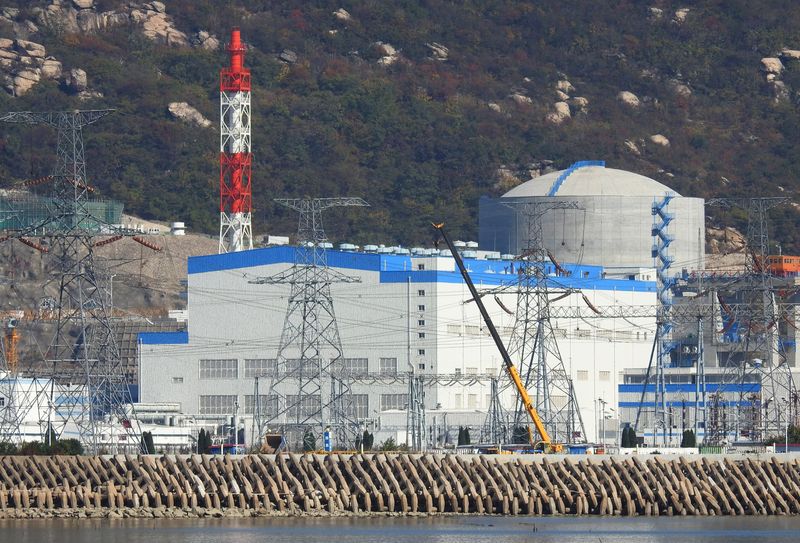By Timothy Gardner
WASHINGTON (Reuters) - The Biden administration has tightened controls on the export of materials and components for nuclear power plants to China, saying it would ensure the items were used only for peaceful purposes and not the proliferation of atomic weapons.
The steps are among the latest signs of strained relations between Washington and Beijing, which have clashed over spying allegations, human rights, China's industrial policies, and U.S. export bans on advanced technologies.
The Bureau of Industry and Security (BIS), an arm of the Commerce Department, now requires exporters to get specific licenses to export certain generators, containers and software intended for use in nuclear plants in China.
The Nuclear Regulatory Commission (NRC), the federal agency responsible for nuclear energy safety, also requires exporters to get specific licenses to export special nuclear material and source material.
That includes different types of uranium as well as deuterium, a hydrogen isotope that, in large amounts, could be used in reactors to make tritium, a nuclear weapons component.
The Biden administration sees the action as "necessary to further the national security interests of the United States and to enhance the common defense and security" the NRC said.
A U.S. official said the changes, made on Monday, were prompted by general policy toward China.
"No action by an exporter or China prompted this action," an NRC spokesperson said. "This is part of a broader U.S. government effort to tighten oversight of certain exports to China."
Chinese embassy spokesman Liu Pengyu said he had nothing to say on the regulation specifics, but in general "China firmly upholds the international non-proliferation regime" and honors its obligations under the Treaty of Non-Proliferation of Nuclear Weapons. China opposes "putting geopolitical interests above nuclear non-proliferation efforts," he said.
Few exporters have used a general license to export the materials to China, so the NRC's action does not affect a large number of entities or amount of material, the agency spokesperson said. Two exports to China of the regulated nuclear materials occurred under a general license in the last year.
Non-proliferation analyst Edwin Lyman of the Union of Concerned Scientists non-profit group said the changes were "more symbolic than substantive" and doubted China's nuclear weapons program would be meaningfully impacted.
The Pentagon said late last year China will likely have 1,500 nuclear warheads by 2035, up from current stockpile of 400 warheads, if it continues its current build-up pace.
Another analyst said it was likely the administration was monitoring the risk of weapons development.

"Apparently what the administration is saying with this regulation is that we can no longer assume that any of China's nuclear power plants are all that peaceful," said Henry Sokolski, executive director of Nonproliferation Policy Education Center.
U.S. company Westinghouse has four AP1000 reactors in China. In 2018 Donald Trump's administration issued restrictions on exports of nuclear reactor technology newer than the AP1000 due to proliferation concerns. Westinghouse did not immediately respond to a request for comment about the U.S. requirements.